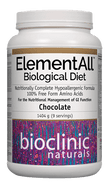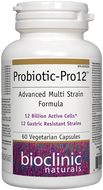Description
Bioclinic Naturals GI Care 120 g:
Botanicals and nutrients that promote a healthy gastrointestinal lining, providing protection against GI injury and improving intestinal permeability.
Phytochemicals and zinc carnosine stimulate intestinal repair and protect against damage, restoring healthy intestinal barrier function; Used in herbal medicine to help relieve inflammatory conditions of the gastrointestinal tract and mild digestive upset
GI Care provides clinically relevant doses of each active ingredient, Powder allows for flexible dosing and administration in a great tasting mango-passionfruit flavour and suitable for vegetarians/vegans.
Ingredients :
| Each Scoop ( apx 4g) Contains: | |
| Deglycyrrhizinated Licorice 10:1 Extract (Glycyrrhiza glabra) (root) | 1200 mg |
| Chamomile 4:1 Extract (Matricaria chamomilla) (flower) | 400 mg |
| Marshmallow 4:1 Extract (Althaea officinalis) (root) | 600 mg |
| Zinc L-Carnosine (Polaprezinc) | 150 mg |
| Aloe (Aloe vera) (leaf gel) | 600 mg |
Non-medicinal Ingredients : Natural flavours, citric acid, guar gum, DL-malic acid, stevia leaf extract, Oryza sativa (rice) hull powder.
Purity: Contains no no artificial colours, preservatives, or sweeteners; no dairy, starch, sugar, wheat, gluten, soy, egg, fish, shellfish, animal products, salt, tree nuts, or GMOs. Suitable for vegetarians/vegans.
Recommended Adults Dose : Take 1 scoop (approx. 4 g) once daily or as directed by a health care practitioner. Mix with liquid before use. Take with food, a few hours before or after taking other medications or natural health products.
store at a cool dry place.
Cautions: Ask a health care practitioner before use if you are pregnant or breastfeeding. Ask a health care practitioner before use if you have diabetes. Zinc supplementation can cause a copper deficiency. If you are unsure whether you are taking enough copper, consult a health care practitioner prior to use. Ask a health care practitioner if symptoms persist or worsen. Stop use if hypersensitivity/allergy occurs. Keep out of reach of children. Avoid use with a known hypersensitivity to any of the ingredients, including allergies to aloe or members of the daisy (Asteraceae) family. No clearly established interactions, but caution is advised while using sedative agents, as there is a theoretical additive effect with chamomile. Licorice may cause hypertension and hypokalemia, and interact with anticoagulants in animal models, due to glycyrrhizic acid activity. Thus, while unlikely to occur with DGL as glycyrrhizic acid has been removed, use should be carefully monitored in these patients.










